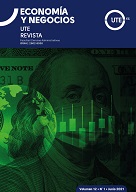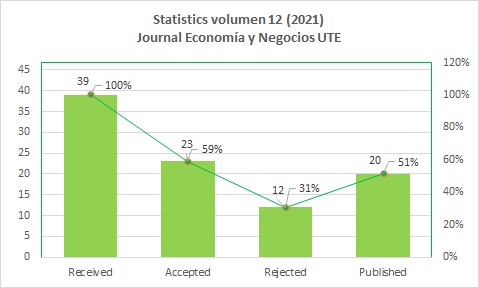Blogs , Wikis and Social Networks and their Impact in Higher Education. A Case of Study from the Universidad Tecnológica Equinoccial (Ecuador)
DOI:
https://doi.org/10.29019/eyn.v7i1.250Keywords:
blog, wiki, social web, web 2.0, Collaborative Learning, higher education, Pedagogical InnovationAbstract
The present millennium is characterized by an accelerated scientific and technological development,
in which our society is part of a profound process of structural transformation in the global economy, politics, culture and environment, caused by the increasingly specialized digital revolution of the
Web; this facts are so related to the diversity of worldviews, identities, knowledge and expressions
that the ways of learning, teaching, communicating, working, and therefore, how people live, have been substantially transformed. In this context, the emergence of Web 2.0, blogs, wikis and social networks in university teaching is a qualitative leap that promotes significant ways of communication and knowledge generation of the scenarios involved. This article presents a review of the state of art on the use of blogs, wikis and social networks, as well as the analysis of the results of the questionnaire designed on the use of the teacher from “Universidad Tecnológica Equinoccial” that can serve as a framework for reflection and action in praxis and educational innovation that can serve as a starting
point for all teachers who search in blogs, wikis and social networks the opportunity to innovate their
educational practice.
Downloads
Downloads
Published
How to Cite
Issue
Section
License
Copyright (c) 2016 The Authors

This work is licensed under a Creative Commons Attribution 3.0 Unported License.
The articles and research published by the UTE University are carried out under the Open Access regime in electronic format. By submitting an article to any of the scientific journals of the UTE University, the author or authors accept these conditions.
The UTE applies the Creative Commons Attribution (CC-BY) license to articles in its scientific journals. Under this open access license, as an author you agree that anyone may reuse your article in whole or in part for any purpose, free of charge, including commercial purposes. Anyone can copy, distribute or reuse the content as long as the author and original source are correctly cited. This facilitates freedom of reuse and also ensures that content can be extracted without barriers for research needs.
Creative Commons Attribution 4.0 International License
The Journal Economía y Negocios is distributed under a
Creative Commons Attribution 4.0 International (CC BY 4.0).

In addition, the journal Economía y Negocios guarantees and declares that authors always retain all copyrights to the original published works without restrictions [© The Author(s)]. Acknowledgment (BY): Any exploitation of the work is allowed, including a commercial purpose, as well as the creation of derivative works, the distribution of which is also allowed without any restriction.















